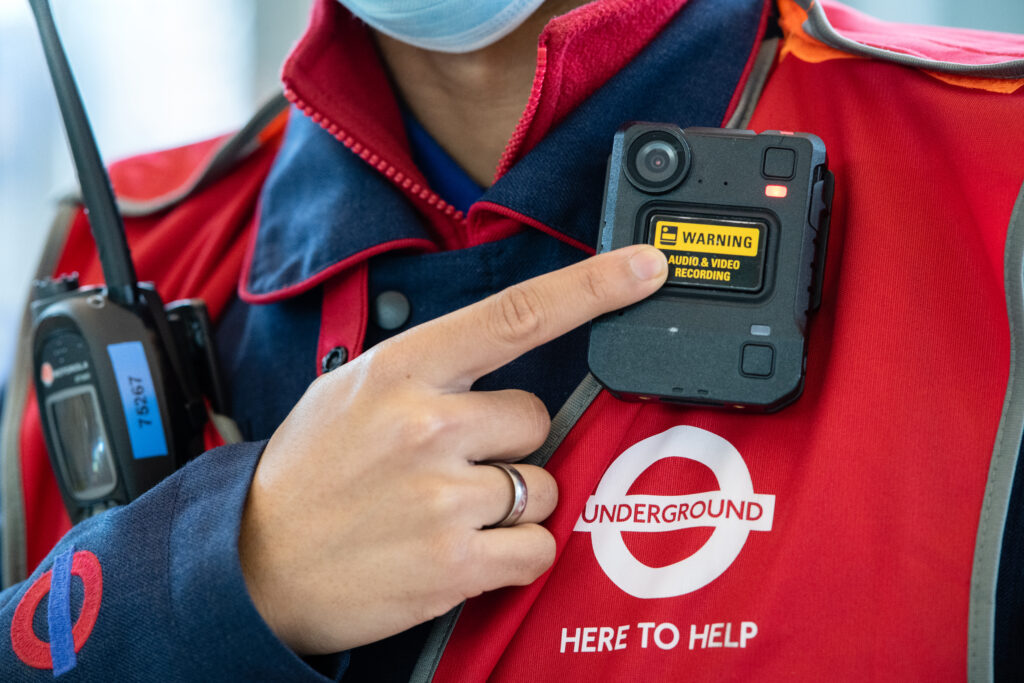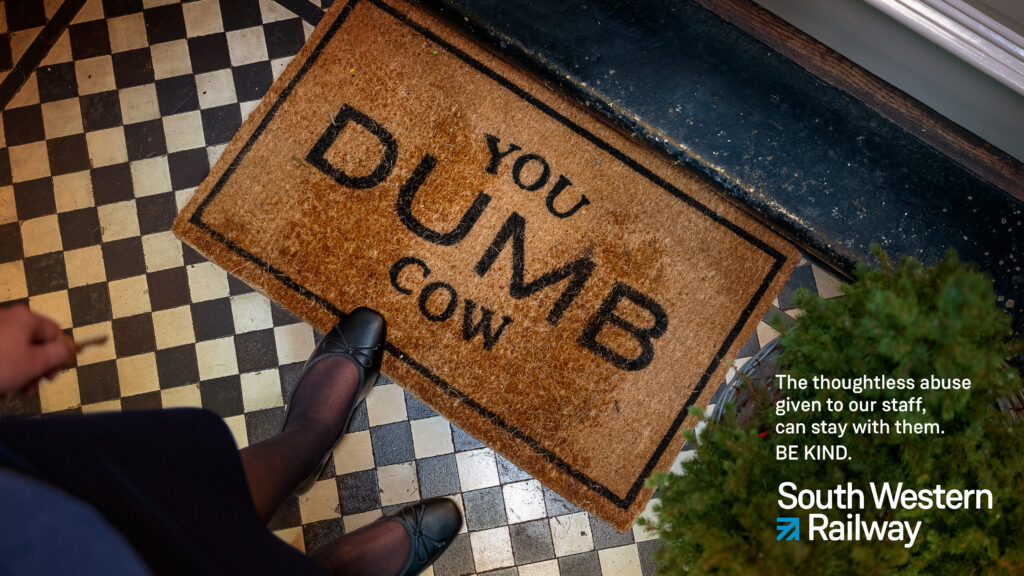Statistics released by Network Rail in November last year revealed that 90% of staff working at its Southern Regions’ busiest stations had suffered abuse, including verbal abuse of a racist, sexist, and homophobic nature, as well as physical assaults.
Frontline colleagues – those who interact with customers on trains or at stations – are all at risk of confrontation with the general public. And it’s a growing problem.
A recent Freedom of Information (FOI) request by the BBC revealed that 4,088 attacks were recorded at railway stations across England, Scotland, and Wales in 2023. The FOI showed that the number of assaults recorded by police was almost 10% higher than pre-pandemic in 2019, despite an 11% reduction in passenger numbers. So how is the rail industry tackling this distressing trend?
Caught on camera
In February, a member of the public from Tyne and Wear was banned from all Northern services across the North of England for 18 months, following a two-year campaign of abuse. The individual was issued with a Criminal Behaviour Order (CBO) following a string of offences which included threats of physical violence towards members of train crew.
The CBO was achieved thanks to the use of body worn camera footage that was shown in court. Northern has recently invested £1.7 million in the roll-out of more than 1,000 body worn camera units to colleagues across its network, taking the total number now in operation to 1,300.
Similarly, Motorola Solutions announced in March that ScotRail had deployed more than 1,000 of its body cameras across its rail network, tripling the number available to staff following ScotRail’s initial deployment, which began in 2017.

The cameras act as a tool for de-escalating potentially difficult situations and provide video and audio evidence of incidents.
“The safety of our staff and passengers is our top priority,” said David Lister, director of safety, engineering and sustainability at ScotRail. “Where body cameras have been used, we have already seen a positive impact on morale and staff confidence, as well as a decrease in reported incidents, helping to ensure a safer environment on our trains and at our stations.”
Staff working for Transport for London (TfL) now count body worn cameras among their essential kit. Using video evidence, in 2023 TfL prosecuted 19,614 people for fare evasion, an increase of 56% on 2022. This is particularly pertinent as fare evasion is often a trigger for violence and aggression towards staff. Indeed, TfL reports that revenue disputes are a precursor to approximately half of all its reported work-related violence and aggression incidents.
Research undertaken by Cambridge University in conjunction with the Rail Delivery Group (RDG) and British Transport Police (BTP) has found that assaults on staff were cut by nearly half (47%) for those wearing body worn cameras. By acting as a visible deterrent, cameras can stop assaults from taking place and prevent violence towards frontline staff across the railway. And while cameras can’t stop assaults entirely, the research shows they do lead to a 30.7% decrease in severe injuries, and a similar decrease (30.5%) for low-level injuries.
War of words
Though physical abuse makes the headlines, verbal and psychological harassment is no less distressing. The consequences can be significant and enduring, impacting mental and physical health.
To combat the frequency of such events, in early March, South Western Railway (SWR) launched a new campaign highlighting the damaging effect of abuse directed at its frontline colleagues.
SWR’s campaign aims to reduce the level of verbal abuse that colleagues suffer, by inviting customers to consider the lasting impact that words can have.
Hard-hitting printed and digital posters conveying this message are now on display across the SWR network, depicting examples of thoughtless abuse staying with colleagues beyond their shift. The campaign will be particularly visible on the network during certain events and times of the week, especially when customers are more likely to have consumed alcohol, which tends to be when levels of abuse against colleagues are higher.
Grant Robey, senior network crime and security manager for SWR, commented: “We know that most customers wouldn’t purposefully abuse our colleagues; a lot of this behaviour arises when customers lose their temper and make heat of the moment comments. Our colleagues come to work to keep everyone safe and they should not expect to face this behaviour. People wouldn’t behave like this in their own workplace, so it isn’t acceptable in ours.”
A combined effort
Tackling staff abuse is not an issue that the rail industry can manage alone. Indeed, a recent initiative by Scotland’s Railway has shown the benefits of close cooperation between multiple agencies.
In December last year, ScotRail, the Scottish Government, the BTP, and trade unions joined forces to tackle abuse experienced by transport staff. The campaign was launched by Transport Minister Fiona Hyslop MSP, timed to coincide with the Christmas party season, which can see a rise in abuse on the rail network.

ScotRail has invested £1.6 million to triple the number of body-worn cameras to tackle anti-social behaviour, hired more people to double staff late-night trains in known problem areas, and introduced a team of revenue protection officers. The BTP has also committed to several pledges which aim to enhance the safety of staff and support any victims of abuse.
A dedicated investigator will follow up any report of abuse and will work closely with ScotRail to support railway staff through any incident. Any repeat offenders, or those deemed to pose the greatest threat to staff, will be targeted with prohibitive court orders.
Supported by a publicity campaign urging customers to consider the longer-term consequences of violence or abuse, the pledge promises to fully support staff by setting out the increased measures being used.
The campaign was supported by the National Union of Rail, Maritime, and Transport Workers (RMT), Associated Society of Locomotive Engineers and Firemen (ASLEF), Transport Salaried Staff Association (TSSA), and Unite the Union (Unite), in addition to Transport Scotland and the Scottish Government.
Stamp it out
There is no place for abuse on the railways – physical or verbal – and every effort must be made to stamp it out. However, this will involve significant investment, cooperation within industry and without, and a dedication to bringing perpetrators to justice.
It will take time and great determination, but the rail network can be made a safer working environment for employees.
Indeed, it must.
Lead image credit: iStockphoto.com/energyy

